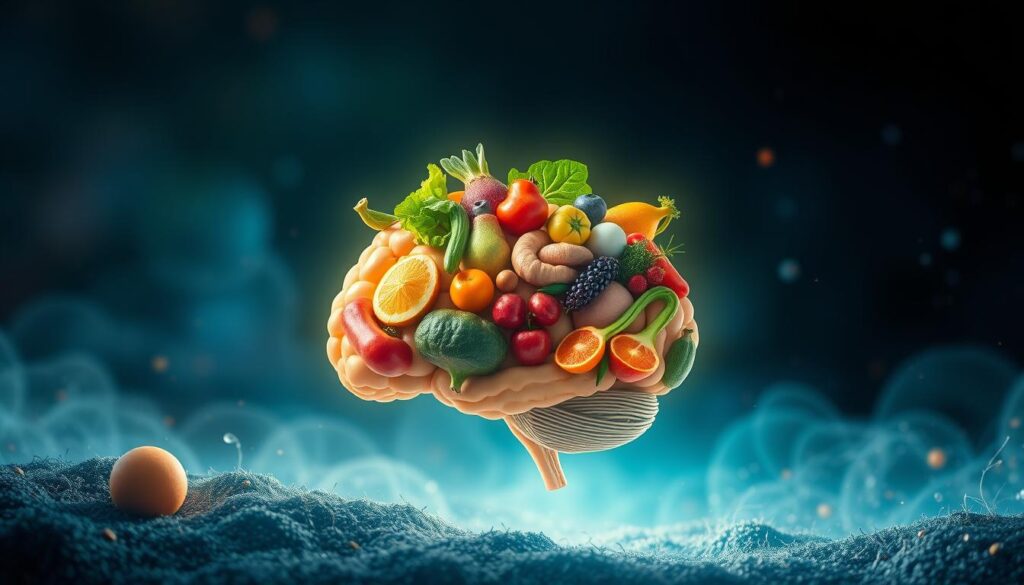Are you constantly feeling sluggish, noticing your hair thinning, or experiencing unexplained mood swings? These could be subtle whispers from your body, hinting at a hidden struggle – a vitamin or mineral deficiency. In today’s fast-paced world, even with access to abundant food, nutritional gaps are surprisingly common. We’re often bombarded with processed foods, leading to poor dietary habits, and our busy lifestyles can hinder nutrient absorption. 1 Understanding the signs and symptoms of these deficiencies is crucial for maintaining optimal health and well-being. This comprehensive guide will delve into the various ways vitamin and mineral deficiencies can manifest, from physical changes like brittle nails and pale skin to mental and emotional shifts like anxiety and fatigue. We’ll explore the common culprits, including iron, vitamin D, and B12 deficiencies, particularly prevalent in India, and discuss actionable steps to address these imbalances. Don’t let these deficiencies silently sabotage your health. Knowing about vitamins and minerals is crucial. They help you stay healthy. Signs of not having enough vitamins and minerals include feeling tired, weak, and having skin problems.
Knowing the signs of nutrient deficiencies is the first step to better health. By spotting these signs early, you can avoid serious health problems. In this article, we’ll look at the signs, causes, and how to fix them. Learn to recognize the warning signs, understand the risk factors, and empower yourself to take control of your nutritional health.
Understanding Vitamin and Mineral Deficiencies in Modern Life
In today’s world, it’s key to know about vitamin and mineral deficiencies. Even with lots of food around, many people still face these issues. This is because of bad diets and not moving enough. Some health problems and medicines can also make it harder to get the nutrients we need.
Some main reasons for these deficiencies are:
- Poor dietary habits, leading to inadequate intake of essential nutrients
- Lack of physical activity, which can affect nutrient absorption and overall health
- Certain medical conditions, such as celiac disease or Crohn’s disease, that impair nutrient absorption
- Medications that interfere with nutrient absorption or increase the risk of deficiencies
Knowing these risks is important. By understanding why we might not get enough vitamins and minerals, we can do better. 
Why Deficiencies Occur Despite Abundant Food
Even with lots of food, we can still have deficiencies. This is because our body might not absorb nutrients well. For example, not getting enough vitamin B12 or iron can happen even if we eat a lot.
Impact of Modern Lifestyle on Nutrient Absorption
Our modern way of life can make it harder for our body to absorb nutrients. Stress, not sleeping enough, and some medicines can all play a part. By understanding these effects, we can take steps to keep our nutrient levels up.
Risk Factors for Developing Deficiencies
Some people are more likely to get deficiencies. This includes those with a family history or certain health issues. Knowing these risks helps us take steps to stay healthy and avoid deficiencies.
Physical Signs of Vitamin and Mineral Deficiencies
Vitamin and mineral deficiencies can show in many ways. You might see pale or yellowish skin. Or, your hair could become brittle or thin. Even your nails might change, becoming brittle or discolored.
Skin, Hair, and Nail Changes
Some signs of vitamin and mineral shortages include changes in skin, hair, and nails. For instance, not enough vitamin B-12 can make your skin pale or yellow. Not getting enough vitamin C can make your hair brittle or thin.

Muscle and Bone Symptoms
Deficiencies can also affect your muscles and bones. You might feel weak or have muscle cramps. Or, you could have bone problems like osteoporosis or fractures.
- Muscle weakness or cramps
- Bone pain or osteoporosis
- Fractures or osteopenia
Seeing these signs can help you fix any vitamin or mineral problems.
Mental and Emotional Indicators of Nutrient Deficiency
It’s important to know the signs of nutrient deficiency. These signs can affect your mental and emotional health. You might feel anxious, depressed, or have mood swings. For more information.
Some common signs include:
- Anxiety and depression
- Mood swings and irritability
- Fatigue and lethargy
- Loss of appetite and interest in activities
These symptoms can come from not having enough vitamins like B12, iron, or magnesium. It’s key to fix these issues to keep your mind and emotions healthy.

Knowing the signs of nutrient deficiency helps you prevent and treat them. This way, you can stay mentally and emotionally well.
Common Signs of Vitamin and Mineral Deficiency in the Indian Population
The Indian population often faces vitamin and mineral deficiencies. This is due to their diet and lifestyle. For example, iron deficiency symptoms are common in menstruating women and young kids.
Vitamin D deficiency is also widespread, affecting over 61% of people. It can cause weak bones and higher fracture risks. Vitamin B12 deficiency is common too, especially among those who don’t eat meat, affecting up to 53% of the population.
Key Deficiencies Affecting the Indian Population
- Iron deficiency: affecting over 54% of the population
- Vitamin D deficiency: affecting over 61% of the population
- Vitamin B12 deficiency: affecting up to 53% of the population
- Zinc deficiency: affecting 19% of pre-school children and 32% of adolescents
It’s important to know the signs of these deficiencies. Eating well and talking to doctors can help. This way, people can stay healthy and feel good.
Conclusion: Taking Action for Optimal Nutrient Levels
Keeping optimal nutrient levels is key for your health. It’s important to act and make sure you get the right vitamins and minerals. This helps your body work well.
Don’t wait for signs like fatigue, a weak immune system, or bad. Be ahead and choose foods that are good for you. Eat lots of fruits, veggies, whole grains, lean proteins, and healthy fats.
If you think you might be missing some nutrients, see a doctor. They can check your levels with blood tests. Then, they can tell you what to eat or take to get better.
Knowing and doing things to keep your nutrients right can really help your health. Live a healthy life and make smart food choices. This way, your body gets what it needs to stay strong.
FAQ
What are the common signs of vitamin and mineral deficiencies?
Signs include changes in skin, hair, and nails. You might also notice muscle and bone issues. Oral health and vision problems are other signs.
Why do vitamin and mineral deficiencies occur despite abundant food?
Deficiencies happen for many reasons. A bad diet and not moving enough are big factors. Some health issues also play a part.
How can I recognize the physical signs of vitamin and mineral deficiencies?
Look for changes in your skin, hair, and nails. Muscle and bone issues are also signs. Don’t forget about oral health and vision problems.
How do vitamin and mineral deficiencies affect mental and emotional health?
Lack of nutrients can cause anxiety, depression, and mood swings. It affects your mind and feelings.
What are the common signs of vitamin and mineral deficiency in the Indian population?
In India, common signs include iron, vitamin D, vitamin B12, and zinc deficiencies. These are big issues.
















Leave a Comment